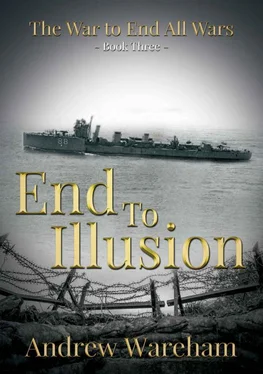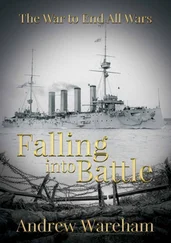“Glad to hear you think so. I agree. Barracks is tedious. But! If the men are not properly prepared and trained, they will not survive in the trenches. It is our duty to do our very best for the poor chaps we lead.”
“Hadn’t thought of that, sir. The Pater is talking with Bridlington just now. Will you come across to meet him, sir?”
There was no choice. Richard smiled at Miss Patterson and thanked her for the dance and the conversation.
“Supper is at midnight, I imagine, Miss Patterson? Will you join me?”
She was willing, it seemed, through the red cheeks and stuttered assent.
“Good old Primrose! Nice sort of gal but far too much the scholar, you know, sir. Never catch a husband with her nose in a book.”
“You may be right, Wincanton. Pleasant girl to talk to.”
The elder Wincanton was a large man, taller than Richard and heavily built and inclined to be overbearing.
“You’re the famous Major Baker, then? Glad to meet you, sir. Honoured!”
Richard responded quietly.
“Young Horatio has told me much about you, Major Baker. I gather you and he have not entirely seen eye to eye, as you might say!”
“You could say that, sir. You might also say that I have threatened to break him, to have him reduced to the ranks for his incorrigible idleness and unwillingness to learn soldierly ways. He has just told me that he has determined to make amends, to set his nose to the grindstone. I do hope that his new willingness to pull his weight will not subside into the old habitual lethargy!”
Lord Wincanton seemed displeased by such plain speech. The Duke, at his side and listening happily, chortled.
“That will put him in his place, Baker!”
He did not make clear which Wincanton he was referring to.
“Going back to Flanders soon, are you Baker?”
“By the end of summer, Your Grace. We left unfinished business there.”
“Well said! I am too old, past it! Four sons and three of them are out there with their regiments, and the eldest in England on the staff. Proper place for any man who calls himself a man.”
“I tend to agree, Duke.”
“We all know that of you, Baker! Honoured to talk with you, got to do the rounds, you know – speak to every man present and try to avoid the Society Dames. Not as hazardous a duty as yours but sometimes more wearisome!”
Lord Wincanton remained, scowled at his son and jerked his head. The young man retreated.
“Will you really break him, Major Baker?”
“If he will not mend his ways, yes, my lord. His men have the right to be led by competent, hard-working officers. At the moment, he is an idler who will let them down. I will not tolerate that.”
Wincanton was forced to say the right words.
“No more you should… What do I do with him?”
“Nothing, my lord. I shall do all that is necessary.”
“I cannot persuade you to go easy on the boy? To give him a chance to change his ways over a period of time?”
“No, my lord. If he will not work with his platoons to bring the men up to the standard I require – and which will give them a better chance of living – then I must replace him. The sole means of getting rid of him is to set him before a court. If he is not on the top of his game within the week, he will go. That will see him as a private soldier and enduring the harshest of regimes in one of the unofficial punishment battalions.”
Wincanton showed alarmed. He had imagined that he would be able to pull strings and at the least have his son transferred to the Pay Corps or some other idle administrative unit safe at Home.
“What are they? I have not heard of them?”
“They are not much publicised, my lord. It has been the case that some of the new recruits have regretted their initial enthusiasm and have taken to criminal ways. It might be that the young men of a street or a village all marched off to volunteer together, making it impossible for any of the locality to stay behind without being ostracised by family and friends. These unwilling volunteers have sometimes misbehaved and have been weeded out of their original regiments and put together in special battalions. It is now the case that any man who goes before a court and who is not imprisoned will be selected for the reformist regime applied in these unseen units. They are, I understand, brutal in their discipline, effective in breaking the criminal. What they turn them into, I do not know. They are sent out to serve in the least pleasant of postings after their initial training.”
“Would Horatio survive such a life?”
“I do not know, my lord. I am, frankly, not concerned either. If your son continues to fail his men, then he must accept whatever comes his way. My sole concern is that the private soldiers of my regiment shall be well-officered by hard working young men of good character and sound principles. Of those four qualities, my lord, I am able to discern that your son is young.”
Lord Wincanton was inclined to take offence, but he could not make a scene at a Society Ball without creating a scandal which would be fatal to his current political ambitions.
“I shall speak to him, Major, most plainly. Is he aware of the existence of the punishment battalions?”
“I doubt it, my lord. He is not aware of much! I will say that I do not doubt his intelligence and ability to learn. His habitual idleness, evidently unchecked throughout his whole existence, makes it unlikely that he will succeed in applying his talents.”
The two parted and Wincanton was seen to leave the Ball a few minutes later, his son in train.
Mrs Joyce appeared at Richard’s side.
“Major Baker, is it not? I believe you were introduced to me recently.”
Warned that they were the merest of acquaintances, Richard agreed that they had met, at the Ball held some three weeks previously, he thought.
“I knew we had spoken! My husband, Colonel Joyce of the 7 thDragoons.”
The two military men exchanged brief bows.
“Good to see you, Baker. Heard of you, of course. Back from France for a week or two, conferences at the War Office, you know. Waiting on the breakthrough, planning for later in the year when you chaps give us a passage through the lines, you know.”
“As soon as we can, sir. Short of guns and rounds as yet.”
“So they tell me. Give us a mile of clear ground and we shall cut the Hun to pieces! Bring an end to all this trench warfare. Drive them back to the Rhine in short time!”
“I hope so, sir. We need to return to a war of movement. The trenches are a disaster. They kill soldiers and do very little else.”
“Well said, haw haw!”
Richard had heard of the cavalry ‘haw haw’, had never come across it before. He did not laugh. He noticed that Joyce was the best part of thirty years his wife’s senior, which might explain her warmth towards him on their sole prior meeting.
‘Stupid and elderly – not an ideal combination.’
He smiled his kindest to the pair and moved around the floor, glancing at his watch. Fifteen minutes to supper, he must locate Primrose.
It occurred to him that he was thinking of the young lady by her first name. Friendship at least. He wondered if there might be more. He spotted her and moved in her direction, was greeted by a beaming smile.
“Did you enjoy your conversation with the Wincantons, Major? I thought neither gentleman seemed happy on leaving the floor so early.”
He took her arm and guided her towards the supper room.
“I enjoyed a frank and open discussion of the young gentleman’s talents, Miss Patterson. Then I explained to his father the nature of the punishment battalions, the inevitable posting for criminal soldiers and broken officers who have been sent to the ranks. I believe the older man is to explain their existence to his son and tell him just how close he is to discovering one for himself.”
Читать дальше












